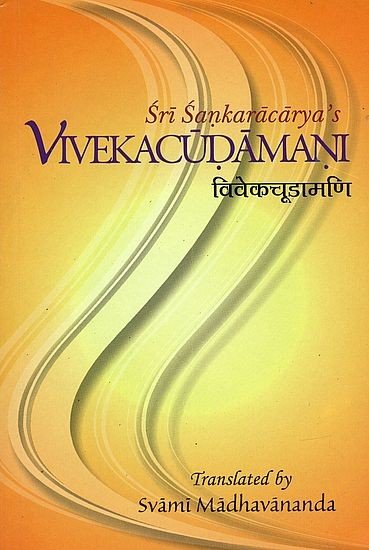Vivekachudamani
by Shankara | 1921 | 49,785 words | ISBN-13: 9788175051065
The Vivekachudamani is a collection of poetical couplets authored by Shankara around the eighth century. The philosophical school this compilation attempts to expose is called ‘Advaita Vedanta’, or non-dualism, one of the classical orthodox philosophies of Hinduism. The book teaches Viveka: discrimination between the real and the unreal. Shankara d...
Verse 424
वासनानुदयो भोग्ये वैरागस्य तदावधिः ।
अहंभावोदयाभावो बोधस्य परमावधिः
लीनवृत्तैरनुत्पत्तिर्मर्यादोपरतेस्तु सा ॥ ४२४ ॥vāsanānudayo bhogye vairāgasya tadāvadhiḥ |
ahaṃbhāvodayābhāvo bodhasya paramāvadhiḥ
līnavṛttairanutpattirmaryādoparatestu sā || 424 ||424. When the sense-objects excite no more desire, then is the culmination of dispassion. The extreme perfection of knowledge is the absence of any impulsion of the egoistic idea. And the limit of self-withdrawal is reached when the mind-functions that have been merged, appear no more.
Notes:
[Compare Panchadasi, ‘Chitradipa’ Chapter, 285-6—“The acme of dispassion is setting at naught even the joys of the Brahmaloka, the highest heaven; Realisation is at its highest when one identifies oneself with the Supreme Atman as firmly as the ordinary man identifies himself with his body; and the perfection of self-withdrawal is jeached when one forgets the dualistic universe as completely as in dreamless sleep.”]
